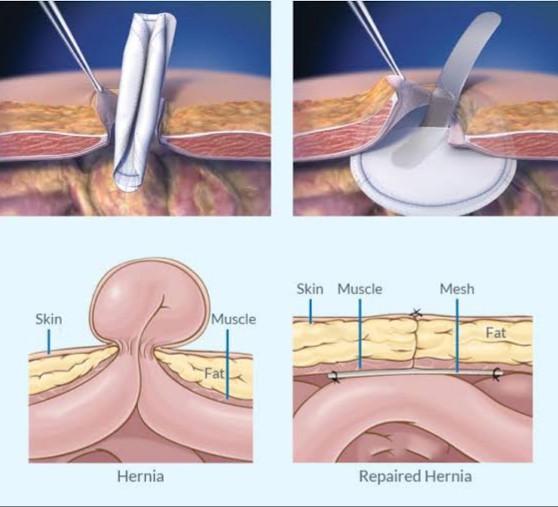Lapsurgery.com.au, Mesh Repair for Hernia – Hernias are a common medical condition that affects millions of people worldwide. When left untreated, they can cause discomfort and complications. Mesh repair is a widely used surgical technique to address hernias. In this article, we will explore the ins and outs of mesh repair for hernia, its benefits, and what patients can expect during the procedure.
What is a Hernia?
A hernia occurs when an organ or tissue pushes through a weak spot in the surrounding muscle or connective tissue. This can lead to a visible bulge or lump and may cause pain or discomfort. Hernias can occur in various areas of the body, with the most common types being inguinal, umbilical, and incisional hernias.
The Importance of Treatment:
Ignoring a hernia is not advisable, as it can lead to more severe complications, including strangulation, where the blood supply to the trapped organ is cut off. This can be life-threatening, making early intervention crucial.
Mesh Repair Explained:
Mesh repair is a surgical technique that has revolutionized the treatment of hernias. During the procedure, a synthetic mesh is used to reinforce the weakened area and prevent the hernia from recurring. This approach has proven to be highly effective and minimizes the risk of hernia recurrence. Benefits of Mesh Repair:
Lower Recurrence Rates:
Mesh repair significantly reduces the chances of hernia recurrence compared to traditional suture-based methods.
Faster Recovery:
Patients often experience shorter recovery times, allowing them to return to their normal activities sooner.
Minimally Invasive:
Many mesh repair procedures can be performed laparoscopically, resulting in smaller incisions and less postoperative pain.
The Procedure:
During a mesh repair surgery, the surgeon will make a small incision near the hernia site. The synthetic mesh is then placed over the weakened area, providing support to the surrounding tissue. Over time, the patient’s own tissue grows into the mesh, further reinforcing the repair.
Recovery and Aftercare:
After the procedure, patients will be advised to follow specific postoperative instructions, which may include restrictions on physical activity and lifting. Pain management and wound care will also be important aspects of recovery.
Consultation and Preparing for Surgery:
If you suspect you have a hernia, it’s crucial to consult with a healthcare professional who can assess your condition and recommend the most suitable treatment. Surgery is typically the recommended option for most hernias, and mesh repair is a common choice due to its success rate.
Mesh repair for hernia has become the gold standard in hernia treatment. This surgical technique offers numerous advantages, including reduced recurrence rates and faster recovery times. If you or a loved one is experiencing hernia symptoms, don’t hesitate to seek medical advice to determine the most appropriate course of action and improve your quality of life.
Remember, it’s always best to consult with a healthcare professional for personalized advice and treatment options tailored to your specific condition.
While mesh repair is generally safe and effective, like any surgical procedure, it does carry some risks. Possible complications may include infection, pain at the surgical site, or mesh-related issues. However, the incidence of such complications is relatively low, and they can often be managed with appropriate medical care.
Alternative Treatments:
In some cases, mesh repair may not be the most suitable option. For individuals with specific medical conditions or those who prefer a non-mesh approach, tissue repair using sutures or other techniques might be considered. It’s essential to discuss the available options with your surgeon and make an informed decision.
Research and Advancements:
The field of hernia repair is continually evolving, with ongoing research and advancements. New materials and techniques are being developed to improve the effectiveness and safety of hernia repair procedures. Staying informed about these developments can help patients make the best decisions for their healthcare.
Final Thoughts:

Mesh repair for hernia is a well-established and effective procedure that has provided relief to countless individuals suffering from hernias. When performed by experienced surgeons and accompanied by proper aftercare, it offers an excellent chance of a successful outcome.
If you suspect you have a hernia or have been recommended for mesh repair, it’s essential to have a thorough discussion with your healthcare provider. They can address any concerns you may have, explain the procedure in detail, and guide you through the entire process.
Closing
Remember, the key to a successful hernia repair is early detection and timely intervention. Don’t hesitate to seek medical advice if you suspect you may have a hernia. Your health and well-being are of utmost importance, and modern surgical techniques like mesh repair are here to help you on the path to recovery and a hernia-free life.

